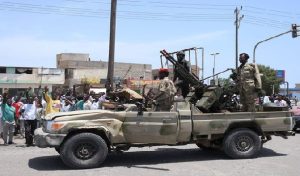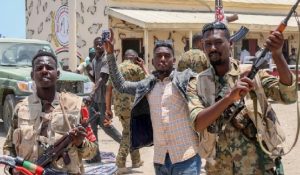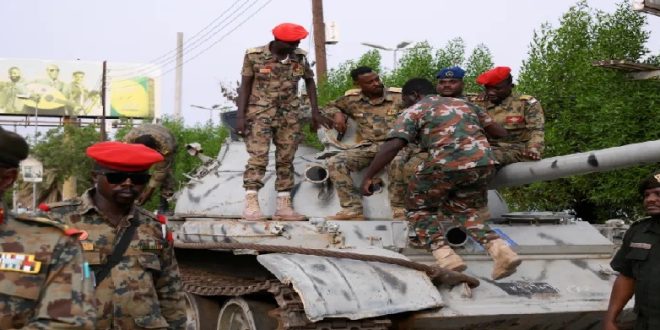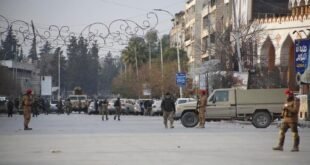22-09-2023
KHARTOUM: For the first time in the conflict in Sudan, fighting broke out in Port Sudan between a tribal militia and the Sudanese army on Monday, and analysts say this reflects mounting tensions between eastern tribes and the army.
 The militia claimed that it was inspecting several vehicles at a checkpoint to ensure that they belonged to the army and not the paramilitary Rapid Support Forces, which had recently threatened to attack the city.
The militia claimed that it was inspecting several vehicles at a checkpoint to ensure that they belonged to the army and not the paramilitary Rapid Support Forces, which had recently threatened to attack the city.
Sudan’s civil war has largely spared the east, but some tribes fear the army’s dominant presence threatens tribal ownership of land, which could exacerbate local disputes.
There were no reported casualties and it is unclear what sparked the fighting in the Red Sea port city.
“The security situation in east Sudan is tied to old tribal families that have lived here for a long time,” said Yousuf Mahmoud, an activist in Port Sudan who asked to use a pseudonym for security reasons. “What’s missing is a solution. They must make social peace with each other and we must stop this trend of having so many armed groups or else the situation could get worse” but any unrest between the tribes or between the army and the tribes could endanger residents and derail relief operations, which use Port Sudan as a main logistics hub to administer aid across the country.
 “I do think there is an interest among eastern tribes to not let the war blow up on their own home turf, but there are plenty of reasons that could go the other way,” said Alan Boswell, a Horn of Africa expert for the International Crisis Group, a non-profit committed to resolving conflicts worldwide.
“I do think there is an interest among eastern tribes to not let the war blow up on their own home turf, but there are plenty of reasons that could go the other way,” said Alan Boswell, a Horn of Africa expert for the International Crisis Group, a non-profit committed to resolving conflicts worldwide.
“The east is a powder keg. We just haven’t seen it blow up yet.”
Since June, the army has opened up dozens of recruitment centres in eastern Sudan to attract young people to fight against the RSF. Despite historic tensions with the army, many eastern tribes have enlisted their young men to acquire training and arms, analysts told media.
Suliman Baldo, the founder of the Sudan Transparency and Policy Tracker, which provides political analysis of the country, said the army’s recruitment drive could fuel local and ethnic disputes. (Int’l Monitoring Desk)
 Pressmediaofindia
Pressmediaofindia




